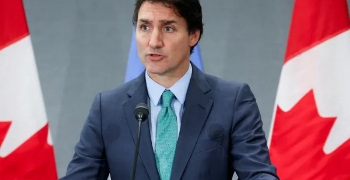Dr. Pratapaditya Mishra
While India is managing the effects of the global Covid-19 pandemic using unprecedented public health and economic measures, the question that comes to everyone’s mind: Will the MSME sector, the backbone of our economy that is bearing the brunt of the jobs and financial pain from the pandemic and subsequent lockdowns get adequate and timely stimulating relief and a safety net for its survival?
While government is opening up measuredly and sequentially with a traffic light approach it has already directed the financial institutions to assess the impact of the pandemic reflecting on their balance sheets, their asset quality and liquidity position in order to introduce a contingency plan to manage the risks. Simultaneously, the government has announced a stimulus package of Rs 1.7 lakh crore and the RBI has allowed a moratorium on term loans, eased working capital financing and also deferred interest payment on working capital facilities without any asset classification downgrade.
SIDBI has announced a concessional interest rate of 5 per cent for MSME loans. Many commercial banks have introduced emergency credit lines. The government has set up a fund of Rs 1 lakh crore, which will be insured with government paying the premium. But are these enough for the survival of MSMEs?
The biggest challenge of Modi government is to bring the confidence back amongst the entrepreneurs and workers through multi-layered composite revival plan.
Extraordinary circumstances call for extraordinary measures.
The government should ensure that organisations are able to pay employee salaries, at least for April and May, to start with by using Employees State Insurance Scheme Corpus. That will take care of the workers of the formal sector. It is not only important to release the dues of MSME units by Central government, state governments, CPSE, state PSUs and other corporate houses to MSME units to ease their working capital burden but also give them supply order to keep the hearth burning. For this, interest-free working capital should be extended to them.
As informality is the nature of unorganised sector, it is high time that survey should be conducted to bring the unorganised units under the registration so that they will be eligible for the benefits and loans etc. A wage support or subsidy package should be worked out to enable employers to pay salaries and other statutory dues to daily wage workers, especially in such units. Beside these the government should extend subsidy to one-person businesses and micro units in the informal sector like plumbers, newspaper vendors, electricians, technicians for electronics and computers and home appliances, drivers and small shopkeepers.
Looking at the uncertainty of Covid-19 pandemic, it is highly desired that the loan moratorium period be extended until December 2020. That is the minimum breather required for them.
Besides GST filing deferment, the government should go one step forward by allowing full or partial payment of electricity bills, water bills and other statutory rents by three months in order to make up the liquidity shortfalls.
In order to give a boost to this sector, the government should come up with a credit guarantee scheme, where it will pay up to a percentage of a bank loan, in case there is a default by the organisation. Banks should be encouraged to come up with a viable lending model with right strategies and due diligence. Digital finance lending platforms may be introduced to offer unsecured loan products as most enterprises in the micro and small business spectrum will have higher risk profiles.
As a reform the government may ensure that MSME units having less than 20 workers (may be with minimum of 5 workers) can be covered with EPF and Miscellaneous Provisions Act; so that many small informal economic units can be included in getting the relief measures.
At the end, the home-bound workers need to be motivated to join back the work by creating social distance measures and other health safety protocols at the work place. It is expected that the government will take utmost care of lives and livelihoods and ensure a stronger India.
The author is a visiting professor at Utkal University in Bhubaneswar. Email-[email protected]







































